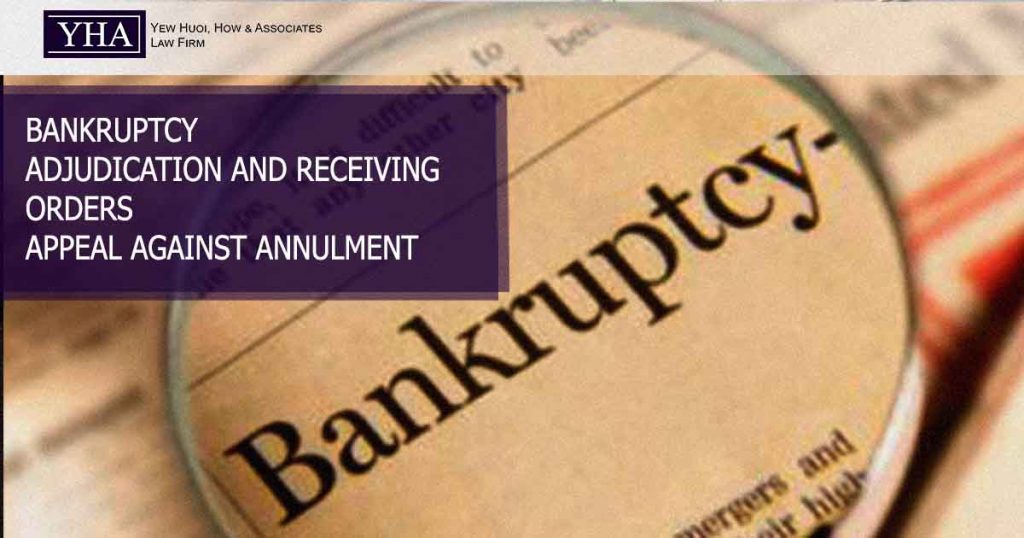In brief
- Being declared bankrupt can have a financial and social impact on one’s life. With that stated, it is critical that the legislation guarantees that bankrupts and judgement debtors facing bankruptcy have enough safeguards and remedy. Some of the options available to a bankrupt include appealing the bankruptcy order, petitioning the court for a discharge order, petitioning the court to annul his or her bankruptcy, and so on.
- Though most people are afraid of bankruptcy, some people believe that struggling businessmen or individuals should consider declaring bankruptcy since it shields them from creditors and allows them to get a fresh start financially.
How can one get out of a bankruptcy?
- A bankrupt can exit bankruptcy by discharge or annulment. Because of the consequence, annulment is always the preferred approach to terminate one’s bankruptcy if it is feasible. When an adjudication order or a bankruptcy order is cancelled, the bankrupt is placed in the same situation as if no adjudication had occurred. The bankruptcy is completely erased, as if the debtor had never been insolvent.
What conditions must the bankrupt meet in order to submit a motion to annul the adjudication order?
- First and foremost, 1) the bankrupt must demonstrate that the debt has been entirely satisfied, or 2) the order should not have been given. Furthermore, 3) if he has been declared bankrupt in Singapore, the distribution of his estate and effects among his creditors should take place there. In other words, if one is declared bankrupt in another country, such as the United Kingdom, the authorities from that nation are only permitted to take property situated in that country, whereas Malaysia authorities are not permitted to touch your estates or assets located in that country. Moving forward, the adjudication order or bankruptcy order may be revoked if the bankrupt’s application for a composition or plan of arrangement is accepted by his creditors and approved by the court at the creditors’ meeting.
What options are available if bankruptcy is released in a way of discharge?
- There are three ways a bankrupt can be discharged following the 2017 change to the Act, which took effect on October 6, 2017. To begin, a bankrupt can be discharged by a court order under S.33(3) of Insolvency Act 1967, by the Director General of Insolvency (DGI) under section 33A of Bankruptcy Act 1967, or by an automatic discharge under section 33C of Bankruptcy Act 1967.
- Furthermore, each choice for the method of discharge described above has particular requirements that must be met in order for the bankruptcy to be discharged. If these requirements are satisfied, a bankrupt will be freed from bankruptcy three years after the date of submission of his statement of affairs.
Conclusion
- With the introduction of the new method of discharge, which was thankfully introduced into our Malaysian bankruptcy legislation prior to the pandemic, debtors and bankrupts should understand that bankruptcy is not the end of the world, and that bankruptcy may be an effective path to a fresh financial start.

